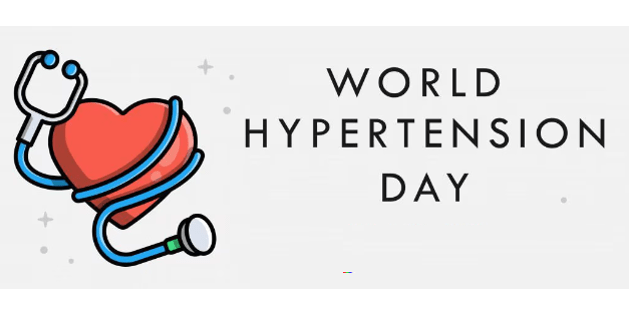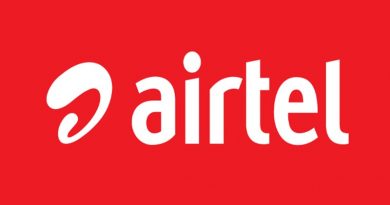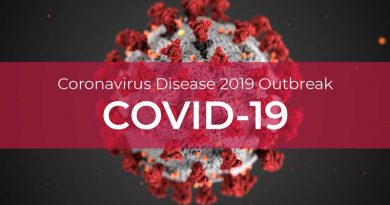One out of every Three Adult Nigerians suffer from hypertension
On a pleasant Wednesday morning, the outreach team established a temporary clinic at the Ebonyi State Secretariat located in the Abakaliki Local Government Area of Ebonyi State, in Southeast Nigeria. This team, which included health professionals from Ebonyi State, members of the Nigerian Medical Student Association, and representatives from the World Health Organization (WHO), aimed to provide complimentary medical examinations, educate the local population on various health concerns with an emphasis on hypertension, and deliver preventive healthcare services. This initiative was organized to enhance awareness regarding hypertension and to honor the 2024 World Hypertension Day.
The 2024 World Hypertension Day initiative, named “Operation Know Your Numbers,” took place at the Market Square and other public venues, offering not only immediate medical support but also imparting knowledge to the community about the importance of regular health screenings, the risks associated with high salt consumption, the dangers of smoking, and preventive health measures. Among those who benefited from this outreach was Mr. Nwanjoku Ignatius, a 58-year-old government employee who was motivated by a colleague to assess his health condition.
An Unexpected Diagnosis of hypertension
When it was Mr. Nwanjoku’s turn, he took a seat with a nurse who initiated the routine procedures: measuring his weight, height, and blood pressure. The nurse’s demeanor quickly shifted to one of concern as Mr. Nwanjoku’s blood pressure was found to be significantly elevated. He was promptly referred to the attending physician. “Prior to this screening, I had no idea that I was suffering from high blood pressure. I have always been engaged in my work, tending to the farm, and traveling to my village without any issues. I had no reason to seek medical attention for quite some time,” he remarked.
Mr. Nwanjoku experienced a mix of shock and confusion. The medical team on site provided reassurance and educated him about the condition, including common risk factors and necessary lifestyle changes. He was given complimentary medication to commence his treatment without delay. Additionally, he was directed to a nearby health center for ongoing follow-up and regular check-ups. After a few days of medication, Mr. Nwanjoku noted a positive change in his readings. “I have made significant adjustments to my lifestyle to prioritize my health, and I diligently adhere to my prescribed medication,” he stated.
Understanding hypertension
At the conclusion of the five-day outreach program held from May 20 to 25, 2024, a total of 518 individuals underwent screening for hypertension. Out of these, 346 individuals (67%) displayed abnormal readings indicating elevated blood pressure. Surprisingly, only 51 individuals (10%) were already aware of their hypertensive condition.
Aside from hypertension screening, the outreach program also provided services such as blood sugar screening for diabetes and body mass index measurements to assess whether individuals were underweight, overweight, or obese.
The outreach program findings shed light on a concerning issue: the community has a significantly high rate of undiagnosed hypertension cases. Many residents, including individuals like Mr. Nwanjoku, are oblivious to their health status and the associated risks they are exposed to.
Hypertension, commonly known as high blood pressure, is a major risk factor for cardiovascular diseases and a leading cause of premature mortality on a global scale. It occurs when the force of blood against the artery walls is excessively high.
Globally, an estimated 1.28 billion adults aged 30 to 79 are affected by hypertension, with the majority (two-thirds) residing in low- and middle-income countries. Shockingly, around 46% of adults with hypertension are unaware of their condition, only 42% are diagnosed and receive treatment, and merely 21% have their hypertension under control.
In Nigeria, one out of every three adults suffers from hypertension. One of the key objectives for non-communicable diseases worldwide is to reduce the prevalence of hypertension by 33% between 2010 and 2030.
A Routine check on Hypertension
Dr. Hyacinth Ebenyi, the Director for Public Health of the ESMoH, expressed gratitude towards WHO for their involvement in the initiative. He took the opportunity to educate the public about hypertension during the campaign, emphasizing its significance as a major public health issue. Describing hypertension as the “silent killer,” he stressed the importance of early detection through routine blood pressure checks to prevent severe complications such as heart disease, stroke, kidney failure, or even death.
The outreach was made possible with the support of WHO, which assisted the state government by providing educational materials, screening equipment, and renovating the non-functional staff clinic at the State Secretariat. This included essential tools like a Sphygmomanometer, glucometer, weighing scale, stadiometer, examining couch, and urinalysis test kit to facilitate regular NCD screenings in the area.
Furthermore, WHO staff actively participated in the outreach by conducting health talks on hypertension and diabetes management, as well as providing counseling sessions. Reflecting on the outcomes of the initiative, Dr. Vivan Ibeziako, the WHO State Coordinator, highlighted the importance of early diagnosis and proper treatment in reducing the burden of hypertension.
She emphasized the need for collaborative efforts among government agencies, WHO, healthcare providers, and the public to address hypertension effectively. Dr. Ibeziako called for a collective commitment to raising awareness and prioritizing the management of hypertension at a national level, ultimately aiming for improved health outcomes for all individuals.




